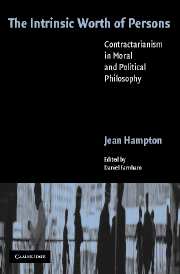Book contents
3 - Mens Rea
Published online by Cambridge University Press: 14 January 2010
Summary
The greatest incitement to guilt is the hope of sinning with impunity.
CiceroAccusing, condemning, and avenging are part of our daily life. However, a review of many years of literature attempting to analyze our blaming practices suggests that we do not understand very well what we are doing when we judge people culpable for a wrong they have committed. Of course, everyone agrees that, for example, someone deserves censure and punishment when she is guilty of a wrong, and the law has traditionally looked for a mens rea, or “guilty mind,” in order to convict someone of a criminal wrongdoing. But philosophers and legal theorists have found it interestingly difficult to say what mens rea is. For example, noting the way in which we intuitively think people aren't culpable for a crime if they disobey the law by mistake, or under duress, or while insane, theorists such as H. L. A. Hart have tried to define mens rea negatively, as that which an agent has if he is not in what we consider to be an excusing state. But such an approach only circumscribes and does not unravel the central mystery; it also fails to explain why the law recognizes any excusing states as mitigating or absolving one of guilt, much less why all and only the excusing states that are recognized by the law are the right ones.
- Type
- Chapter
- Information
- The Intrinsic Worth of PersonsContractarianism in Moral and Political Philosophy, pp. 72 - 107Publisher: Cambridge University PressPrint publication year: 2006



